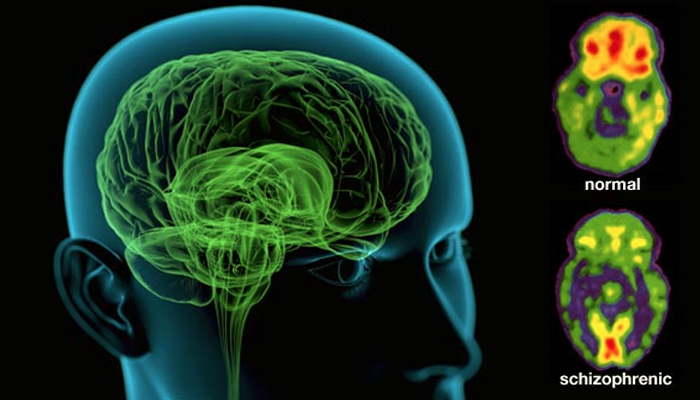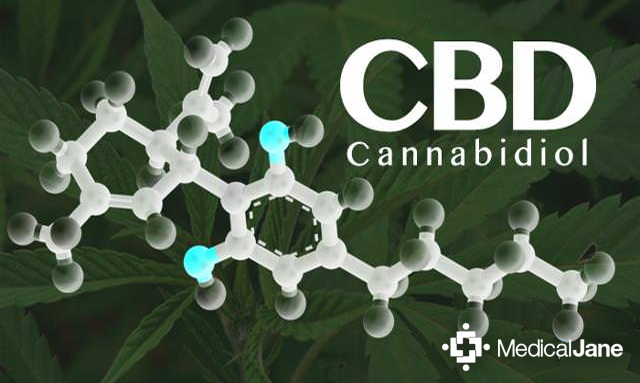Cannabidiol (CBD)
ShareTweet
Not all cannabinoids are colorless. One of the most brightly yellow-colored cannabinoids is CBD, a very valuable cannabinoid. CBD has tremendous medical potential. This is particularly true when the correct ratio of CBD to THC is applied to treat a particular condition. CBD acts as an antagonist at both the CB1 and CB2 receptors, yet it has a low binding affinity for both. This suggests that CBD’s mechanism of action is mediated by other receptors in the brain and body.
Latest Research
Study: Cannabidiol (CBD) May Reduce Cigarette Consumption
Cannabidiol (CBD) Could Help Treat Nicotine Addiction It is no secret that cigarette smoke has detrimental ramifications in the human body. In fact, a study published in 2008 cited tobacco as the single greatest cause of preventable death internationally. “Each cigarette smoked is estimated to shorten life expectancy by 11 minutes.” Common conditions with which cigarettes are related include: heart attacks, strokes, chronic obstructive pulmonary disease (COPD), and various types of cancer. In fact, each cigarette smoked is estimated to …
CBD-Based Epilepsy Drug Approved For Clinical Trials
FDA Approves Studies For Marijuana-Based Epidiolex The US Federal Drug Association approved clinical studies that aim to determine whether purified cannabidiol (CBD) is a viable anti-seizure treatment. Physician investigators will be provided with Epidiolex, a new 98% CBD product made by GW Pharmaceuticals, and conduct Investigational New Drug studies involving epileptic children. According to O’Shaughnessy, the clinical studies will be sponsored by Orrin Devinsky, MD, at the NYU School of Medicine, and Roberta Cilio, MD, PhD, at University of California, San Francisco. Both are …
Study: Cannabidiol (CBD) May Help Treat Obsessive-Compulsive Disorder
Brazilian Researchers Investigated OCD & Cannabidiol As we know, medical marijuana has long been used to help treat various types of anxiety. Cannabidiol (CBD), in particular, has received a great deal of attention for it’s anti-anxiety potential and a number of high-CBD products are making their way into the market with increased regularity. That being said, no two forms of anxiety are alike. One suffering from social anxiety has a vastly different experience than that of a …
Medical Marijuana May Treat Aggressive Forms Of Breast Cancer
Medical Marijuana May Benefit Breast Cancer Patients Contrary to popular belief, breast cancer is not one disease – it is an umbrella term used for many different diseases, according to HER2 Support Group. HER2-positive breast cancer is a particularly aggressive type that forms when there is an over-expression of the HER2 gene. Not only does HER2-positive breast cancer grow rapidly, but it is often associated with a poor prognosis and high recurrence rates. Although successful treatments have been designed to target the HER2 gene in particular, research reports that they do not garner …
Study: Cannabinoids May Combine To Effectively Treat Leukemia
Researchers Investigated Anti-cancer Properties Of Cannabinoids For years science has provided evidence suggesting tetrahydrocannabinol (THC) may be an effective cancer treatment. With that said, many are against using THC treatments, largely due to its psychotropic (mind-altering) effects and research has begun to focus of the efficacy of non-psychotropic cannabinoids. Cannabigerol (CBG) and cannabidiol (CBD) are two …
Study: Cannabidiol (CBD) May Treat Schizophrenia Symptoms
Canadian Study: Cannabis May Benefit Schizophrenia Patients Despite the growing information about medical marijuana and its benefits, little is known about the effects it has on schizophrenia. One study suggested that cannabidiol (CBD) may play a role in reducing the psychotic symptoms of schizophrenia, and another study published this year suggests that cannabis may reduce the some of the cognitive impairments. Symptoms of schizophrenia are often divided into two categories: positive symptoms and negative symptoms. Positive symptoms are those which are …
Study: Cannabidiol (CBD) May Protect Neurons In Brain
Researchers Study CBD’s Neuroprotective Effects More evidence of cannabidiol’s (CBD) role in brain development seems to present itself every month. The cannabinoid has been tied to promoting neurogenesis, and the prevention of schizophrenia and neurodegenerative diseases already. Further, a recent study suggested that CBD may prevent the damage associated with cerebral oxygen deficits. A …
Study: CBD-Based Topicals May Aid In Alcoholism Treatment
What Is CBD’s Effect On Brain Degradation? According to the National Institute of Alcohol Abuse and Alcoholism (NIAAA), alcohol can be linked to neurodegradation (i.e. breakdown of neurons, which are brain cells that communicate with each other to transmit signals) among other effects. Due to the fact that cannabidiol (CBD) has been found to potentially have neuroprotective effects, a study published last week in Pharmocology Biochemisty & Behavior aimed to explore the effect of cannabidiol topicals on alcohol-induced …
Study: CBD May Help Reduce Psychotic Symptoms Of Schizophrenia
Research Shows Cannabinoids May Reduce Psychosis Research about the cannabinoid system is becoming a trend in medicine, and cannabidiol (CBD) seems to have stolen the limelight from its sister, tetrahydrocannabinol (THC). CBD has shown promise in preventing cancer from cigarette smoke, reducing heart damage from chemotherapy, and many more studies are being conducted. CBD inhibits the uptake of anandamide, allowing it to stay …
Cannabidiol (CBD) May Prevent Cancer From Cigarette Smoke
Study: CBD May Inhibit Creation of Carcinogens It’s no secret that smoking cigarettes can have deadly consequences. According to the Center for Disease Control and Prevention (CDC) estimates, cigarettes are responsible for 160,848 cases of cancer each year. It is believed that the connection between smoking and cancer is due to cytochrome P450, family 1, member A1 (CYP1A1). CYP1A1 is a protein found in humans. Although it can be perfectly harmless in small concentrations, a 1993 study titled “CYP1A1: friend or foe” found that high levels of CYP1A1 were related to cancer. It is …









